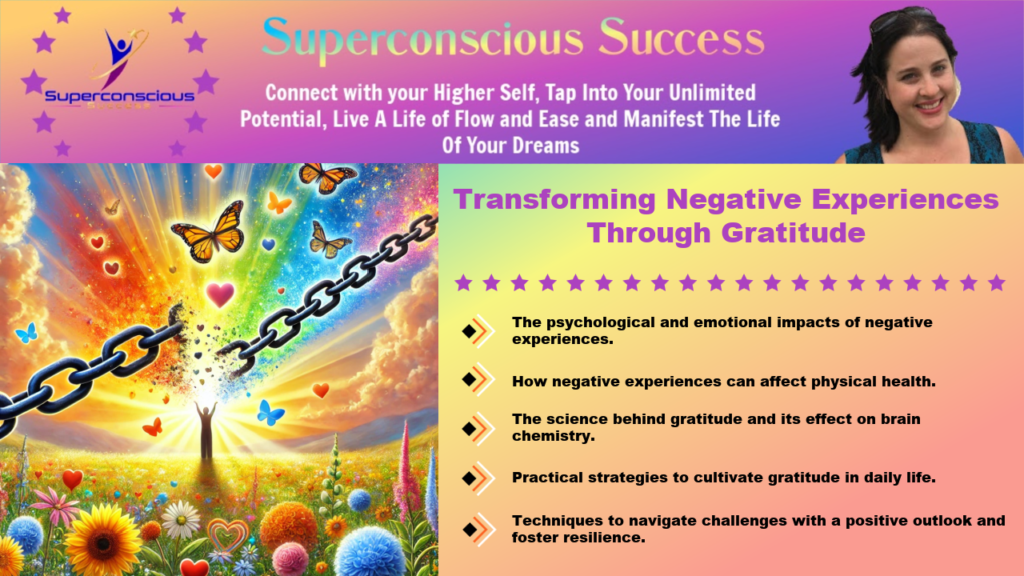
In this blog post, you’ll explore the profound effects of negative experiences and how they can impact your emotional, psychological, and physical well-being. You’ll gain insights into the science of gratitude, understanding how it can transform your brain chemistry and enhance your overall life satisfaction. Additionally, we’ll provide you with practical strategies for cultivating gratitude in your daily life, helping you navigate challenges with a more positive outlook. By the end of this post, you’ll have a deeper understanding of how to address negative experiences constructively and incorporate gratitude practices to foster resilience and emotional balance.
Scientific research has increasingly illuminated the profound impact of gratitude on your mental and emotional well-being. Gratitude is more than just a fleeting emotion; it’s a powerful tool capable of transforming your neural pathways. Neuroscience has shown that regular gratitude practices can significantly alter brain chemistry, fostering a more positive outlook and improving overall life satisfaction.
Studies in positive psychology reveal that expressing gratitude activates regions of your brain associated with dopamine production. Dopamine, often referred to as the “feel-good” neurotransmitter, plays a critical role in mood regulation and reward processing. When you engage in gratitude exercises, such as keeping a gratitude journal or expressing thanks to others, your brain’s reward system is stimulated, leading to increased feelings of happiness and contentment.
Additionally, gratitude enhances the function of your brain’s prefrontal cortex, which manages emotions, decision-making, and social interactions. This enhancement can lead to improved emotional regulation and a greater capacity for empathy, fostering healthier relationships and social connections. Practicing gratitude not only helps mitigate negative emotions like envy and resentment but also promotes positive behaviors such as kindness and generosity.
Longitudinal studies have demonstrated that individuals who consistently practice gratitude report higher levels of life satisfaction and well-being. You might experience reduced symptoms of depression and anxiety, as gratitude helps shift your focus from negative experiences to positive ones. This shift in perspective is crucial for building resilience and coping with life’s challenges.
In essence, the science of gratitude underscores its transformative potential. By incorporating gratitude practices into your daily life, you can rewire your brain to prioritize positive experiences. Ultimately, this leads to a more fulfilling and emotionally balanced existence, further enhancing your resilience in facing adversity and strengthening your capacity for resilience over time.

















